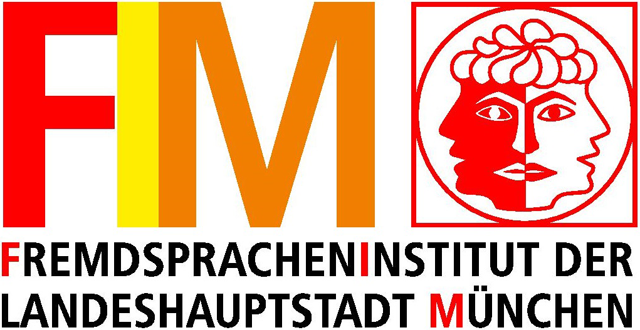Berufsfachschule (BFS)
Vocational training school
Become a foreign-language correspondent in just 2 years!
We offer you
- a qualified and specialized training for foreign-language careers (DE-EN-FR-ES)
- even without previous knowledge in French and Spanish
- a diversified study programme
through projects, workshops, company visits and internships within the EU
- an international staff
- a training that meets future working requirements
- a school in tune with the times, with mordern technical equipment
- the chance to study in the heart of Munich
Training at the BFS
State-qualified foreign-language correspondent
Jobs are usually office-based and require a very good knowledge of foreign languages and a sound understanding of the basics of business management, together with competence in the use of modern media.
Typical tasks might include taking care of correspondence in German and other languages, translating less complex items from a normal business day, looking after guests and customers from abroad and, in particular, dealing with international phone calls. Written and spoken communication with business partners is without doubt a major element.
State-qualified Euro- correspondent
With management assistants now being required to react to the globalization and internationalization of economic activitiy, the FIM has, since 1993, been making BFS vocational school graduates ‘ready for Europe’ in an extra (third) year of study.
Euro-correspondents are trained to take on more demanding linguistic and business tasks. This follow-on course focuses on improving your minor foreign language, economic subjects and polishing up your communicative skills.
The success of a company in the international marketplace is not only a function of economic factors. It also depends on the communicative faculties of its employees and their knowledge of foreign values and norms as well as their appreciation of the expectations and customs standard in other cultures. To be as keenly aware as possible of how business people in other countries operate, company staff must open themselves to foreign ways, gather information from as many export-based companies as possible and talk to experts and people from European institutions.
For each staff member, this means putting in a lot of effort, being able to handle large workloads, learning to act and react confidently, solving problems competently and being perfect team members at decisive moments.
Languages
You decide when applying to join the BFS or the FAK what your major and minor foreign languages are to be, with your major language being given priority in terms of hours and level.
Course work assumes your native language is German.
There are also supplementary German courses for students whose native language is not German.
Possible language combinations:
| Major foreign language | Minor foreign language | Special subject bias |
| English | French or Spanish | Economics |
| Spanish | English oder French | Economics |
| French | English oder Spanish | Economics |
IT
Word processing
Word-processing classes are held at the Institute in up-to-date computer rooms.
An essential tool of the trade for foreign-language correspondents is their ability to use computers. Compulsory word-processing classes aim to raise students’ 10-finger typing speed to at least 180 characters per minute and teach them the most important functions of the Office programs for Windows.
Other courses
Training for further qualifications at the FIM
- A third year of study, involving more detailed instruction in your minor foreign language and economics, leads to the examination for state-qualified Euro-correspondents.
- Minor language expansion: in the third year of study, you will bring the standard of your minor foreign langauage up to that of your major foreign language, preparing you to qualify as a state-qualified foreign language correspondent in two foreign languages.
- Graduates of the BFS may also apply to move up to the first or second year class at the FAK specialist academy and take the examinations for state-qualified translators and / or interpreters after three or two further years of study respectively. Entry to the FAK is dependent on passing an entrance examination.
Year abroad as an assistant
Students at the FIM are entitled to take advantage of opportunities offered by school authorities in other countries to gain practical experience by working as foreign language assistants, usually for a year.
These student exchange years are organized by the Pädagogischer Austauschdienst, or PAD, Germany’s national agency for the EU’s schools programmes.
Studying abroad
World Education Services, North America’s agency for the recognition of foreign certificates, officially recognizes final qualifications obtained at the FIM. The final qualification at the BFS is considered equivalent to a High School Diploma, enabling students to take up places at American universities, while the final qualification at the FAK equates to a Bachelor of Arts. There are similar opportunities for those graduates wishing to continue their studies in Britain, Ireland, France and Spain.
Subject bias
Subject bias
Your specialist field of study encompasses the special subject bias you have chosen to study in depth, expanding your knowledge of the terminology and deepening your understanding of the subject.
At the BFS, we offer an economics bias.
EU Programmes
What about completing a practical in another EU country? Since 1996 the FIM has been taking advantage of the opportunities offered by the EU’s Lifelong Learning Programme, organizing stays abroad for students from both the BFS and the FAK .
Learn more here.
BFS examinations
Written and oral testing takes place in all subjects throughout the school year, with grades appearing in end-of-year certificates. At the end of BFS2, the second year at the BFS, final examinations are organized centrally under the auspices of the Bavarian Ministry of Education.
The final examination for foreign language correspondents takes place after completion of the second year of training.
The examination comprises:
- a written examination in your major foreign language
- a written examination in your minor foreign language
- an oral examination in your major foreign language
- an oral examination in your minor foreign language
State examination for foreign-language correspondents and Euro-corespondents (DE)
